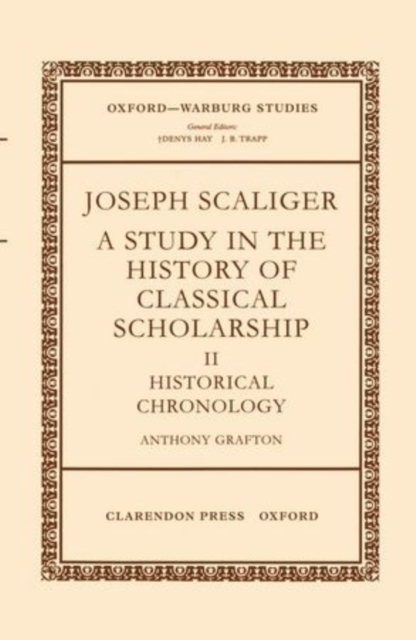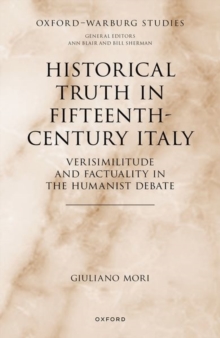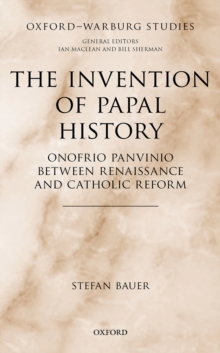
Joseph Scaliger: II: Historical Chronology Hardback
by Anthony (Professor of History, Professor of History, Princeton University) Grafton
Part of the Oxford-Warburg Studies series
Hardback
Description
During the fifteenth and sixteenth centuries technical chronology, the study of calendars and of dates in ancient and medieval history, was both a fashionable and a controversial discipline.
Theologians debated the dates of the Creation, the Flood, and the Crucifixion.
Astronomers and historians argued about the identity of the eclipses that could supply absolute dates for events long past.
Classical scholars reconstructed the religious beliefs and political practices that had governed the Greek and Roman calendars.
Clerics and consultant experts, finally, debated what was to be done to mend the obviously faulty calendar of the western Church.
Poliziano and Pico, Luther and Melanchthon, Copernicus and Kepler all studied and wrote about chronology. Late in the 1570s Joseph Scaliger (1540-1609) turned his attention to this field.
He had already established himself as an innovative and ingenious editor of Latin texts, as the first volume of this study showed.
But he now became one of the most celebrated scholars in Europe.
He synthesized the work of dozens of other scholars, many of them now forgotten.
He started or took part in many technical debates. And on such central problems as the date and nature of the Last Supper, the reliability of the various Old Testament texts, and the worth of the fragmentary historians of the ancient Near East, he showed remarkable erudition and insight. This book tells the stories of chronology and of Scaliger himself.
It describes the scholarly circles in which he moved - above all the University of Leiden, the most innovative in Europe, where he spent the last decade and a half of his life. And it reconstructs his relations with contemporary scholars and scientists - notably Tycho Brahe and Johannes Kepler - and his remarkable, if wholly unofficial, career as a teacher.
It is a sequel to volume I: Textual Criticism and Exegesis, published in 1983.
Information
-
Out of stock
- Format:Hardback
- Pages:784 pages
- Publisher:Oxford University Press
- Publication Date:16/12/1993
- Category:
- ISBN:9780199206018
Information
-
Out of stock
- Format:Hardback
- Pages:784 pages
- Publisher:Oxford University Press
- Publication Date:16/12/1993
- Category:
- ISBN:9780199206018










